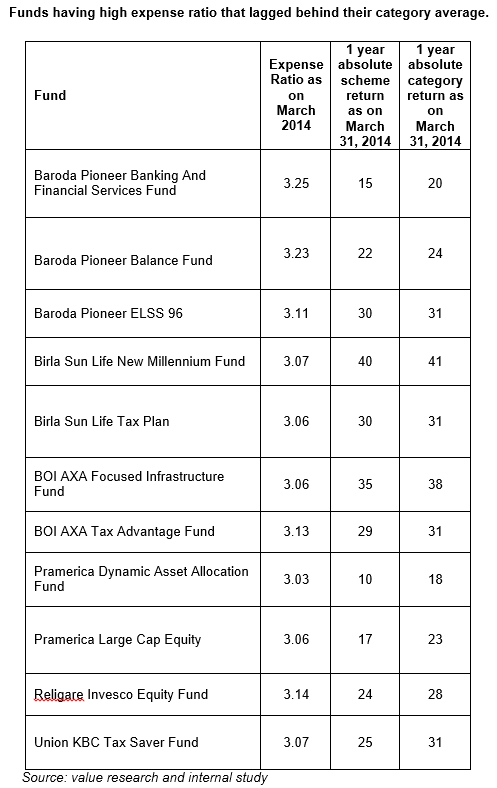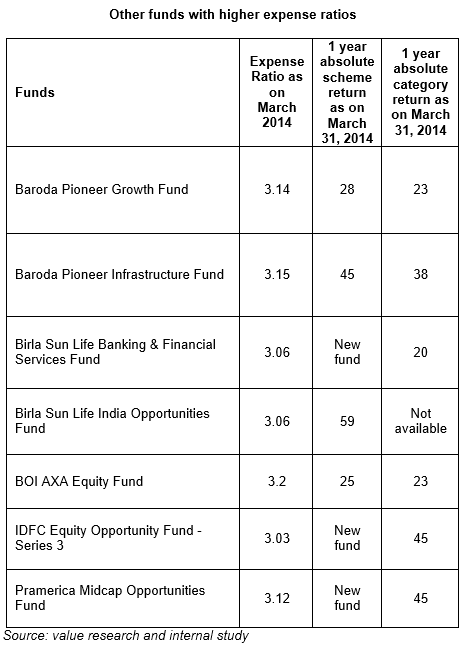Majority of equity funds having expense ratio of over 3% have underperformed when compared to their one year category average returns.
Fund houses have increased expense ratios in some of their smaller equity schemes after the regulator allowed them to charge TER. However, some of these funds have not been able to provide superior returns to justify higher costs.
Some equity schemes
are charging TER in excess of 3%. Currently, seven fund houses – Baroda
Pioneer, Birla Sun Life, IDFC, Pramerica, Religare Invesco, BOI Axa and Union
KBC have been charging over 3% expense ratio in 18 equity schemes, shows Value
Research data. A majority of these schemes have underperformed going by the
average one year absolute returns of their category.

Vidya Bala, Head – Mutual Funds Research, FundsIndia.com believes that high expense ratio hurts the performance of funds and eats up returns of investors. She is of the view that these funds may continue to underperform their category average returns. “Such fund houses should review their expense ratios and bring it down so that it could benefit investors and ensure better performance.
A sales head of a foreign AMC told Cafemutual that majority of the funds having AUM of less than Rs. 100 crore are charging close to 2.7% expenses. In fact, few small funds have outperformed their peers due to better fund management, he added. He said that funds having high expense ratios lag behind their peers due to absence of effective fund management strategy.
However, some experts have a different opinion. “Higher expense ratios don’t create much difference in scheme’s performance, particularly in equity funds. The performance of equity funds completely depends on quality of stocks in the portfolio and philosophy of fund management,” says Hemant Rustagi of Wiseinvest advisors.
Meanwhile, a few funds having higher expense ratio like Baroda Pioneer Infrastructure Fund, Baroda Pioneer Growth Fund and BOI AXA Equity Fund have outperformed their category average in one year absolute returns.





